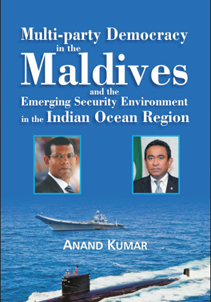Chinese moves in South Asia: Will Xi’s Dhaka visit change dynamics of India-Bangladesh ties?
Associate Fellow, IDSA, Dr Anand Kumar’s article on the effect of Chinese investment in Bangladesh on Delhi-Dhaka relations, titled ‘Chinese moves in South Asia: Will Xi's Dhaka visit change dynamics of India-Bangladesh ties?’ was published in South Asia Monitor on November 11, 2016.










